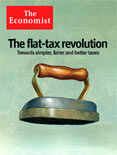“If you really want to improve the lives of the poorest, forget all this ‘kumbaya socialism’ – which is a cocktail of bad economics and bad theology, held together by self-righteous candle-waving.”
– Dr. Sean Gabb.
|
|||||
Not to be outdone by this bold commitment, the other main parties hastened to make what they believe are equally appealing promises to the electorate. The Liberal Democrats have pledged to increase intelligence if they are elected. A press release issued by their head office (which nobody can actually find) claimed that “average IQs have slipped dramatically under this government”. They promise that the Liberal Democrats are determined to close the “mental wealth gap” by extracting neurons from the brains of very clever people and injecting them into the brains of stupid ones. Meanwhile, the Conservatives have promised to make people taller. Speaking outside Central Office, some chinless mediocrity said that their proposals would help everyone under 5′ 10″ and would result in an average height gain of 3 inches. The Greens have poured scorn on the Conservative proposals claiming that the reason that some people are shorter than others is because tall people are hogging more than their fair share of growth hormones. A Green spokesman..er woman…er thingy, said that the Greens are committed to a programme of genetic redistribution. So the race for election of May 5th is hotting up and if you don’t vote you could well miss out on all these good things. Glenn Reynolds links to this article saying that the French government has put its support behind a law allowing the Chinese military to attack Taiwan as well as end the EU embargo of arms to China. So let me get this straight. France, a democracy (sort of) decides to let a communist dictatorship – China – acquire the necessary means and legal clearance to attack a democratic neighbour that has posed no threat or problem whatsoever to France (apart from cheap electronics, maybe). I guess that is what is known as nuanced foreign policy. Way to go, Jacques! Our standing orders on Samizdata are to write not just about certain specific areas of thought and policy, but about what is on our minds. I take this as an invitation to stray beyond the obvious and beyond our core expertises, such as they are. Not everything here is even supposed to make complete sense. In that spirit, let me tell you about two pieces of writing which, taken together, struck me as interesting. They are pretty interesting even separately, but together they get even more interesting. Anyway, see what you think. The first piece of writing is a book called The Cradle of Thought, by Peter Hobson, who is an expert on autism, but not only on autism. Hobson’s subject matter is not just the particular form of unusual thought and experience called autism, but also the light that this and other abnormalities throw on the processes of normal human thought. (One of the best ways to understand how something is supposed to work is to examine what happens when something or someone damages it or in some way interrupts its smooth working.) What comes across from this book is that thinking, of the sort that most of us do most of the time, is an intensely social thing. It starts not just with me thinking about that. It starts with me thinking about that by learning what you already think about that. What you (typically my mother) think(s) is the thing that gets me started with my thinking. So, if I am the sort of me who is especially disposed not to pay attention to what you (my mum) are (is) thinking, that changes how I think, about everything. I may become very expert, by default, about things, but remain permanently baffled by people, and in particular by the notion that other people have a point of view of their own which I can tune into, and by the idea that other people are accordingly very different from other mere things. This book seems to be quite well known and quite highly regarded, so there is no shortage of further verbiage to read about it should you feel the urge, now that you have heard a little of my point of view about it. The other piece of writing was this article and related discussion, about dogs, and about the differences between dogs and such animals as wolves and foxes, which I got to via the ever interesting and stimulating Arts & Letters Daily. → Continue reading: Autism, dogs, etc. Only a wilful fool would dispute that racism moved from being the unremarkable default mainstream view in the western world to being a prejudice which scarcely dare speak its name. I would argue that this did not come about just because a few anti-discrimination laws got passed. A great many things are illegal and yet doing them does not put you ‘beyond the pale’ in polite society. In most circles lighting up a spliff or speeding or paying your builder/nanny/housekeeper in cash are matters of little or no account and few people would think less of you if they discovered you were doing so. Overt racism on the other hand has precisely that effect because regarding that there has been a cultural shift. To be a racist is not just wrong, it makes you a jackass in the eyes of others. Most racists are now more prone to keep their views to themselves, not because someone will call the cops and have them hauled off to a re-education camp, but because they can no longer safely assume others will share their meta-context. And so with that in mind, it may seem trivial to rail against people who display or wear images of Che Guevara but what is at stake is far more than a battle for mere tee-shirt space. The fact that a person wearing a Himmler or Hitler tee-shirt would attract scorn is quite appropriate, and so it is really quite intolerable that fans of the mass murderers of the left get to think images of their favoured mass murdering thug makes them look cool. Why just let that slide? Groups like the ‘animal rights’ activists PETA provide a fairly good example of ‘going to the culture’ with some success at portraying people who wear fur coats as wicked and getting that meme into the zeitgeist fairly effectively at least in the USA and UK (though rather less successfully elsewhere). So do not shrug off efforts to portray people who wear images of communist mass murderers as jackasses rather than ‘cool’ as wasted effort over something something of no account. Little things like this add up and if you believe, as I do, that the single biggest factor determining the triumph or defeat of liberty is a cultural expectation of liberty, then fighting for the cultural issues really does matter. And if the lumpen wearing the Che Guevara tee-shirt does not even know who he was, as will often be the case, then tell him in no uncertain terms so that next time he looks at his pile of shirts, perhaps he will think twice before putting it on and maybe, just maybe, look at other people wearing those vile tee-shirts a bit differently. I am due for a fascinating teleconference in 10 minutes, but I thought this Glenn Reynold’s post nicely illustrated a real blind spot for libertarians. We tend to be market- and economics-oriented, and any concentration of attention in one area creates blind spots in others. One of those blind spots has to do with the economically irrational but irreducibly human craving for non-material benefits in the form of status, recognition, etc.
I have a niggling sense that there is a lot more to be said on this subject, but duty calls. Go read the Instapundit post, and as always, be sure to click the concluding “Indeed.” Selected research on bread:
Providing all the scientific support any nanny-stater will need to implement controls. John K added a comment to the Rover over story here last week which Mark Holland liked so much that he reproduced it over at his blog in its entirety. I agree, and had in mind to do something similar here when I first read it. But now that Mark has already immortalised it, I will confine myself to reproducing the final enraged paragraph of what John K had to say about Stephen Byers:
So far so entertaining. We think Byers is a fool. We would. But then last Sunday evening, in the tube, I picked up a discarded copy of the Observer business section. And I later read, on its front page, this piece about the Rover debacle, which contained the following choice invective, also about Stephen Byers:
Something tells me that Byers will not actually pay anything, and incompetence by the standards of normal life is not the same as political incompetence, is it? So he may indeed make a political comeback. However, the fact that Byers is being trashed in the Observer makes me optimistic that this particular incompetent may have had his day. If so, then I guess he will have to go back to Polytechnic lecturing. If they’ll have him. Three newspapers caught my attention today, in relation to what they had to say about the Conservative party. Mark Steyn in the Daily Telegraph pointed out that the Conservative party was not even arguing against the doctrines of social democracy and therefore could not complain with the fact that the forces of an ever larger government were going to win the general election in Britain. If one will not even argue one can not blame the people for siding with one’s opponents. Mr Richard Littlejohn in The Sun newspaper (sorry, not in on-line edition) also argued that timidness of the Conservatives would mean that they had no hope of victory. Finally the Financial Times had on its front page the fact that almost 7 out of 10 voters believed that the Conservative party would put taxes UP if elected to government. I believe that two things are wrong with the Conservative party. One is indeed the timid nature of its policies, as the Economist journal pointed out weeks ago the tax and spend policies of the Conservative and Labour parties are so similar as to be almost indentical. But it is not just a matter of policy, it is a matter of the arbitrary power of the leadership. In the late 1970’s (when the Conservative party was last out of government) many Conservatives showed interest in ideas, they visited the Institute of Economic Affairs, they set up research bodies of their own (such as the Centre for Policy Studies) they freely debated both the practical details of policy and the political principles on which policy should rest. All this has been much more muted in recent times. First, pressure was put on people to only say what the party wished them to say (and this pressure started long before the election campaign) and now first candidates and then an actual member of Parliament have been turned on – turned on for absurdly mild ‘crimes’. First a candidate was told he must stand down because he had been photographed with firearms (that did not even belong to him) in the background of the photograph – this in the party that once represented not just shooting for hunting but the British National Rifle Association and the Constitutional Club network (once stronger in Britian than in the United States). Then a candidate was told he must stand down because the socialist Guardian newspaper had attacked his use of the term creative destruction in relation to the public services. It did not matter that the candidate was simply quoting Joseph Schumpeter (the non Austrian school, Austrian economist). It was not a question of the leadership thinking that, say, Hayek and Mises were better economists than Schumpeter – the leadership of the Conservative party were not interested ideas at all. The Guardian had attacked, so the candidate must go. Then Mr. Flight a member of Parliament (whilst Parliament was still sitting) was told he would not be allowed to stand for Parliament as a Conservative again – regardless of the fact that his Constituency Association and the local voters supported him. His crime? Saying that he thought there was more scope for savings in government spending than the leadership had said. Mr Flight said nothing about ‘secret plans’, but he was not just removed from the Shadow Cabinet, – he was removed from the list of candidates for the Conservative party. It is this “list” that is the key problem. It is not a simple matter of Mr Howard (the leader of the Conservative party) being a bad man – no person should have the arbitary power to effectively expel someone from Parliament simply because they do not happen to like something they have said. It is as if President Bush could expel any Republican from the House of Representatives simply because they said that they thought that there was more scope for savings in government spending than President Bush has said. This arbitrary power of the leadership of the Conservative party did not use to be used liked this (so some fault does go to Mr Howard as an individual), but it is the power itself that must be removed if their is to be a real chance of an intellectual restoration of the Conservative party. The Conservative party was once called by its enemies the ‘stupid party’. Whatever the truth or falseness of this charge, a political party today that is uninterested in ideas, indeed expels anyone who shows an interest, has no chance of returning to power. Yesterday I was out and about and spotted multiple front cover display of the latest Economist, with a headline which went: The flat-tax revolution. I liked this, and took a photo of it, but it came out blurry, and before I could take a decent number to make blurriness less likely I was chased away by a security guard mumbling about copyright, etc. So here is the Economist version:  Final paragraph of the story:
Portillo was wittering on yet again, on the telly last night, about how the Conservatives had to go for the “middle ground”, and electorally speaking that may well now be true, if getting votes for whatever will get votes is all that you care about. Accordingly, I look forward to the time when a flat tax is middle of the road, and when flattening the damn tax into the road so that there is nothing left of it is the “extremism” that Portillo et al will then be warning us all against. The UN continues to confirm that it is everything its detractors says it is and so much more. Kofi Anan is now blaming the UK and USA, the two countries which produced people in official positions who were willing to point out that the UN ‘sanctions’ in Iraq were a complete scandal, for the way things played out. The sooner this bizarre organisation is destroyed the better. Sean Gabb now has a report up about his efforts to knock some freeness into the heads of those self-styled fair traders. And in Alex Singleton’s Globalization Institute email this morning was a link to a write-up of the Globalization Institute in the Church press, although how significant this particular example of the Church press is I do not know. Still, it all helps. See also this posting. In the comments on that earlier posting that flagged up the meeting in the Church last Friday night, puzzlement was expressed about why so many of these Fair Traders are in favour of free trade for the rich countries, especially in things like agriculture, yet opposed to free trade for poor countries. How come? Are they not being inconsistent? I can suggest a possible answer that makes sense of such an apparent contradiction. Suppose that (a) you are an egalitarian, and that (b) you think free trade is harmful to whoever has it imposed upon them. That would explain it, I think. Trade freedom makes rich countries poorer, and trade unfreedom makes poor countries richer. Total bollocks of course. Egalitarianism is stupid, and the claim that trade freedom makes countries poorer and that trade unfreedom rescues poor countries is the opposite of the truth. But if that is what you are and what you think, it becomes reasonable. As in: a madman is someone who has lost everything except his reason. Impeccable logic, based on false axioms. The result of such agitation is actually to make rich countries richer, and to keep the poor countries poor, which is the very thing these self-righteous morons spend their lives saying they object to. But there you go. There’s one born every time a celebrity clicks his/her moronic finger on the telly. For some further thoughts on these and related matters from me from way back, see this. |
|||||

All content on this website (including text, photographs, audio files, and any other original works), unless otherwise noted, is licensed under a Creative Commons License. |
|||||




